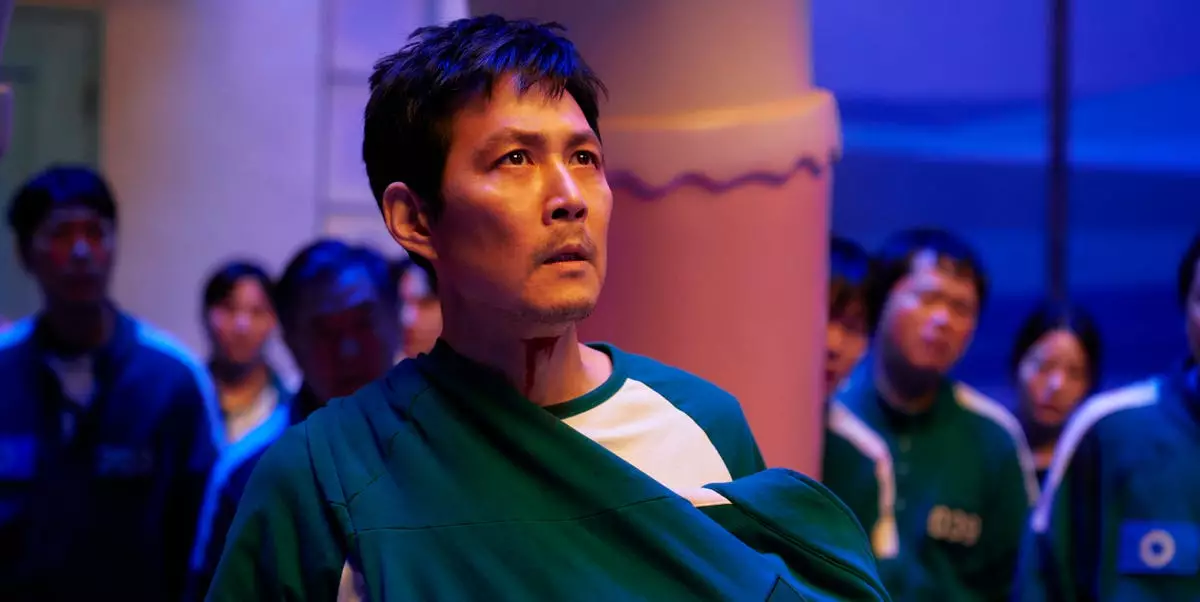The conclusion of *Squid Game*’s third season signifies more than just the finale of a gripping series; it embodies a profound statement about the state of society and the potentials for genuine change. While many viewers might have anticipated a triumphant or even morally ambiguous resolution, creator Hwang Dong-hyuk’s decision to craft a somber, sacrificial ending reveals a commitment to authentic storytelling over spectacle. This choice underscores a vital narrative philosophy: that sometimes, the most impactful stories are those that mirror the complexities and harsh realities of the world we inhabit.
Instead of indulging fans’ hopes for a typical ‘happy ending,’ Hwang deliberately shifted toward a conclusion that emphasizes sacrifice, hope rooted in selflessness, and the urgent need for societal introspection. Such a stance is bold, especially within the context of popular culture where escapism often reigns. By eschewing easy gratification, *Squid Game* encourages viewers to confront uncomfortable truths about economic disparity, social apathy, and collective responsibility. This deliberate narrative decision elevates the series from mere entertainment to a mirror reflecting the pressing issues that demand our attention.
Reflecting Societal Gloom to Inspire Collective Change
Hwang’s reasoning reveals an artist deeply concerned with the trajectory of the modern world. He perceives a landscape marred by worsening inequality, environmental neglect, and geopolitical instability. In this sense, the show’s final act becomes a symbolic gesture—a plea for the older generations to pause their relentless pursuit of greed and privileges, and instead foster hope through sacrifice. The image of Gi-hun sacrificing himself to save the innocent child becomes a powerful metaphor for breaking cycles of selfishness and imagining a future where compassion trumps greed.
This act of selflessness illuminates the core message that true hope for a better future requires collective effort and the recognition of our shared vulnerabilities. As Hwang points out, the world is increasingly shaped by economic and environmental crises, and he sees the finale as a form of moral rallying cry. It is an appeal for the older generation to demonstrate that change is possible—not through denial or apathy, but through deliberate, often painful, sacrifices. This perspective fosters a dialogue about social responsibility that transcends entertainment, inviting viewers to reconsider their roles within a fractured social order.
Challenging Audience Expectations and Redefining Success
The choice to end *Squid Game* with ambiguity and sacrifice rather than redemption or victory is a calculated risk, one that demonstrates confidence in storytelling as a means of social commentary. This decision may be polarizing—some fans might feel disappointed by the lack of a conventional resolution—but it aligns with the series’ core ethos: exposing uncomfortable truths to ignite reflection and possibly inspire action.
Hwang’s initial idea was a more uplifting conclusion—Gi-hun escaping and reunifying with his daughter—an optimistic sendoff that many viewers could cling to. Yet, his evolution in thinking underscores a crucial insight: that narratives of hope and salvation must be rooted in reality to carry weight. When Gi-hun chooses to sacrifice himself, he embodies the universal struggle between self-interest and altruism—a delicate balancing act that defines the human condition. His final act becomes a statement that hope, however fragile, can be born out of despair and sacrifice.
The series’ bold ending, then, isn’t merely about individual salvation but a commentary on societal salvation. It asks whether collective progress is achievable if individuals continue to prioritize personal gain. In this context, Hwang’s vision challenges audiences to reflect on their own values and responsibilities. Can we, as a society, learn from Gi-hun’s sacrifice? Or will continued greed and indifference drown us further in despair?
Art as a Catalyst for Societal Reflection
*Squid Game*’s finale exemplifies how art can transcend entertainment and serve as a powerful catalyst for societal change. Hwang’s decision to craft a less optimistic ending is a testament to the belief that genuine transformation begins with uncomfortable honesty. By confronting the audience with the stark consequences of societal failures—both economic and moral—the show invites a deeper engagement with real-world issues.
In an era where escapism often dominates media, *Squid Game* dares to be different. It refuses to offer easy solutions or superficial comfort, instead choosing to highlight the moral weight of sacrifice, especially in a world plagued with inequity. This approach isn’t just artistic bravado but a moral imperative; stories like this push us to consider what sacrifices might be necessary on our part to forge a more equitable future.
Ultimately, the series stands as a compelling reminder that hope need not be naive or simplistic. It can thrive even in darkness, provided we are willing to confront the truth head-on. Hwang’s final message—that true progress demands sacrifice—resonates deeply, urging us to re-evaluate our priorities and consider what kind of world we want to build for the next generation.

